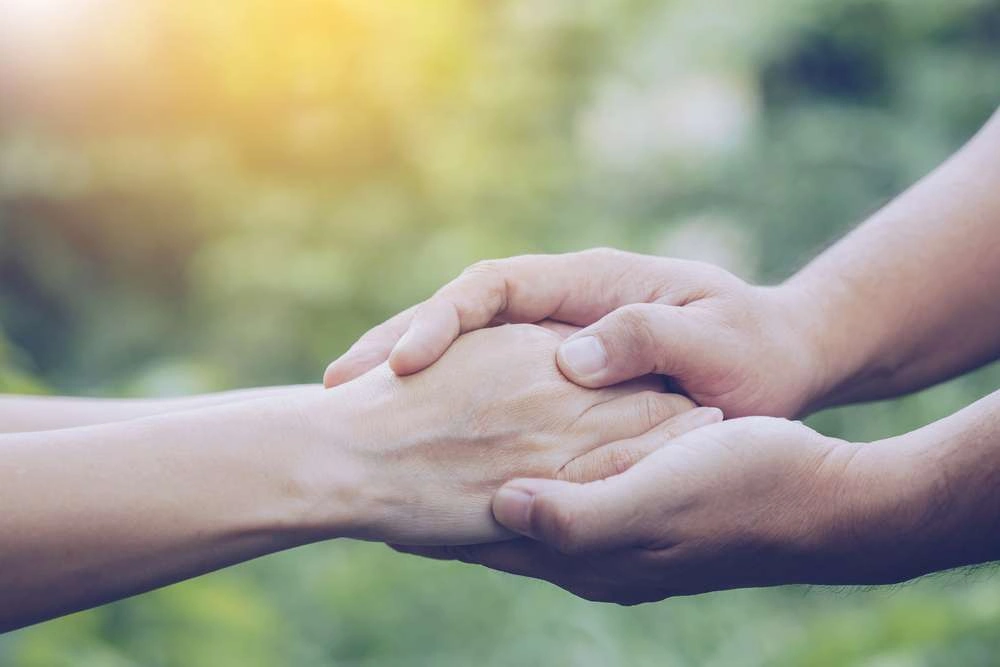
Worried About Domestic Violence and Alcohol?
The following content explores the relationship between alcohol and domestic violence, which some readers may find distressing. If you or someone you know are a victim of domestic abuse, contact the police by calling 999 if in immediate danger, or 101 for non-emergencies. You can also find links to support helplines and charities below.
Domestic violence, also known as domestic abuse, is a pattern of behaviour in an intimate or familial relationship that is used to manipulate and maintain control over someone. Domestic violence and alcohol are recognised as problems together and separately. In the UK it is estimated that 1 in 5 people will experience domestic or intimate partner violence at some point in their lives.1
Alcohol is often involved in domestic violence, with 40% of violence towards intimate partners linked to alcohol consumption in 2020.2
Domestic violence can take place over months and years, gradually taking away the victim’s self-esteem and self-worth through repeated, manipulative actions.3
Types of Domestic Abuse
It is often assumed to involve violence which causes physical harm, but it can also be: 4
- Emotional: humiliation, threatening to hurt you, isolating you from loved ones.
- Financial: controlling, removing or restricting access to money.
- Sexual: forcing you to perform sexual acts, sexual violence, or having sex with you without your consent or knowledge.
- Psychological: harassing or stalking you, making you fearful, threatening you, making you feel bad about yourself, putting down your achievements.
- Child abuse: Children and young people may experience domestic abuse both first-hand and indirectly.
Women and Men
In general, women are more likely to experience violent crime, with a higher proportion of women experiencing domestic abuse compared to men.5
However, it is important to recognise that men experience domestic abuse too, but are less likely to report it because of the stigma attached.
Post-Pandemic Domestic Abuse
Domestic abuse and violent crime have increased in the UK. This may be partly due to the pandemic, which led to a greater risk of domestic aggression due to isolation and mental health challenges, as well as increased levels of alcohol misuse and alcohol use disorders.6
The Relationship Between Domestic Violence and Alcohol
Alcohol use is often linked to increased likelihood of alcohol-related aggression. Alcohol and other substances can lower inhibitions and decrease decision-making, and this can lead to impulsive behaviour, and in some cases domestic violence and alcohol. 7
Domestic violence and alcohol misuse is also linked to binge drinking. Binge drinking in particular may lead to increased levels of physical aggression, but any attempts to restrict alcohol from the abuser can also lead to violent outbursts in response.
People with a history of childhood trauma are more likely to enter relationships with abusive partners, and abuse victims themselves may start drinking as a way to cope with the abuse, over time leading to dependency.
Taking Action Against Domestic Abuse
Alcohol problems are not an excuse for aggressive behaviour. If you or someone else is in immediate danger, call 999. If for safety reasons you cannot speak, dial 999 and then press 55 to alert the police.
There is no shame in seeking help. Choosing not to act enables the abusive behaviour, and the violence could escalate in severity. Tell someone you trust about what is going on.
Don’t wait for a crisis to leave. Plan how you are going to leave, calmly and carefully.8
The following steps may help you leave safely:
- Leave at a time when your partner/abuser isn’t home.
- Take everything you and anyone travelling with you may need, including travel documents.
- If you have children, take them with you and let their school know the situation.
- If you can, set aside funds in a private bank account that your partner/abuser doesn’t have access to.
Make a safety plan for emergencies – Women’s Aid has a handbook to help you.
Treating the Root Cause
Alcohol is never the sole cause of domestic abuse, although drinking can certainly make things worse. If you are an abuse survivor and you or someone you know is experiencing alcohol problems, it is important to seek professional help and support. Counselling can help you to explore the root causes.
Domestic abuse survivors may experience flashbacks or ongoing feelings of fear, and these can be signs of post-traumatic stress disorder. Some people who experience domestic violence turn to drugs and alcohol as a way to cope with traumatic memories and difficult emotions. Both the substance addiction and the trauma can be addressed with counselling and therapy.9
If You or Someone You Know is in Danger From Domestic Violence and Alcohol
If you or someone you know is in danger of violent incidents at home, immediately call 999 and inform the police. Take steps to remove children and any other vulnerable people from the environment.
The following resources can help:
- Women’s Aid
-
Respect Men’s Advice Line (for male survivors)
-
Galop (LGBTQIA+)

CATCH Recovery Can Help
Here, at CATCH Recovery we provide treatment for alcohol addiction including mental health counselling and trauma therapy for those who have been impacted by domestic abuse in adulthood as well as during their upbringing. We also offer family therapy to assist all family members who have a loved one who is in recovery from addiction, to mend broken relationships and build bridges.

Find Help and Support at CATCH Recovery
Frequently Asked Questions
-
Is there a link between domestic abuse and alcohol?
Over 40% of violent offenders in 2020 were under the influence of substance use. Drinking is never the sole cause of domestic abuse, but alcohol availability can make the problem worse.
-
Are chronic alcohol users more likely to be violent?
Alcohol lowers inhibitions and makes us more likely to act impulsively, which can lead to alcohol-related aggressive behaviour by the intoxicated person. However, many people who drink alcohol are not violent.
Some survivors of intimate partner violence may start drinking alcohol as a coping mechanism to handle the abuse.
-
Is alcohol a key factor in domestic violence?
Alcohol contributes to many cases of domestic abuse, and often makes the physical violence more severe. However, drinking alcohol is never the only reason. A common misconception is that removing alcohol will stop the abuse, but often the opposite is true as the abusive partner may become agitated and act out.
-
Do all people with alcohol addiction become abusive?
No, many alcohol and drug misusers will never become violent. However, if a person is already displaying abusive behaviour, consuming alcohol may make this worse.
-
References
- National Centre for Domestic Violence. Domestic Abuse Statistics UK. [Accessed 18 November 2024]
- Institute of Alcohol Studies. Patterns in Alcohol Related Violence. [Accessed 18 November 2024]
- Social Care Institute for Excellence. Types and Indicators of Abuse. [Accessed 18 November 2024]
- The Mend Project. Can a Relationship be Mutually Abusive? [Accessed 18 November 2024]
- Office for National Statistics (2024) The nature of violent crime in England and Wales: year ending March 2024. [Accessed 18 November 2024]
- Alcohol Change UK. Alcohol and domestic abuse. [Accessed 18 November 2024]
- NHS. Domestic violence and abuse. [Accessed 18 November 2024]
- Women’s Aid. I want to leave my relationship safely. [Accessed 18 November 2024]
- National Centre for Domestic Violence. Domestic Abuse & Post Traumatic Stress Disorder. [Accessed 18 November 2024]